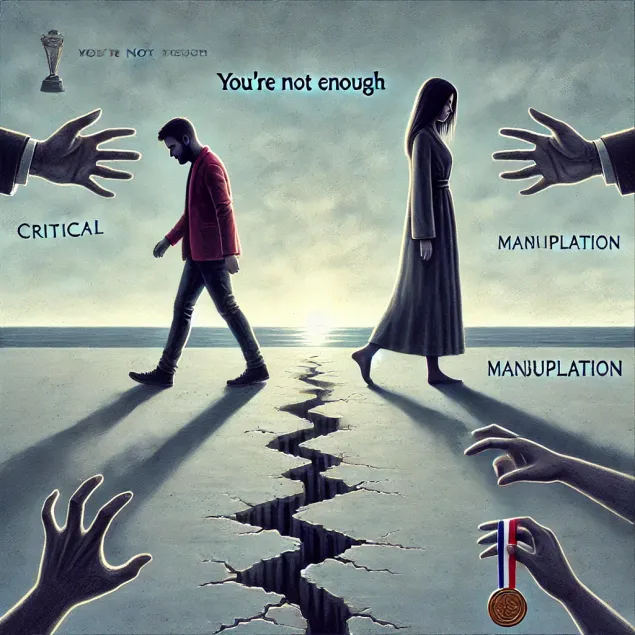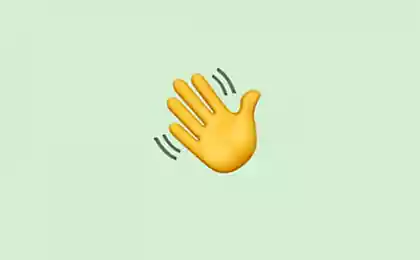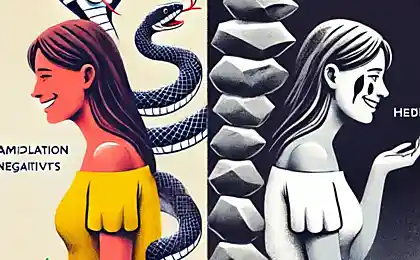496
8 Signs That It’s Time to End a Friendship (According to Psychologists)

Friendship is a valuable and important quality in human life. But there are times when relationships that once brought joy and support begin to hurt. Many of us are afraid to admit that it is time to end a friendship, believing that it will be cruel or that it can be fixed. However, sometimes an important step towards psycho-emotional health is the ability to abandon those people who have ceased to be a source of support and positive emotions. Psychologists identify several signs that indicate that it is time to end a friendship. In this article, we will look at 8 such signs that will help you make the right decision for yourself.
Ecology of life: When does friendship stop being healthy?
Friendship is not only about sharing joy, but also about supporting in difficult times. Healthy relationships help grow and develop, and toxic and exhausting relationships lead to emotional exhaustion. Sometimes it’s hard to know when a relationship is no longer healthy and when it is toxic. However, there are some clear signs that it is time to end the friendship.
8 Signs That It’s Time to End Your Friendship
1. Constant criticism and condemnation
When a friend criticizes you all the time without respecting your feelings, it’s the first sign that friendships can be toxic. If a person is constantly evaluating your decisions, appearance, or lifestyle, leaving no room for your own choices and opinions, it indicates that your relationship has become one-sided. In a healthy friendship, it is important that both people can support each other, not just criticize.
Such a friend can make you feel insecure, even if you have previously felt support and acceptance. Constant criticism destroys self-esteem and makes friendships painful.
2. Manipulation and attempts to control
If a friend often manipulates you into feeling guilty or obligated, this is a clear sign that your relationship has become unhealthy. Manipulation can manifest itself in the form of guilt, pressure or even blackmail. For example, “If you don’t support me, I’ll be upset” or “You owe me that.” Such phrases make you feel guilty, even if you don’t owe them anything.
A healthy friendship is based on mutual respect and trust, not on trying to control another person. If friendships begin to feel like commitment or constant pressure, it’s time to think about ending the relationship.
3. Lack of support during difficult times
Friends need to support each other in difficult situations. If at times when you need help or support, your friend turns out to be indifferent or even happy about your suffering, this is a worrying sign. A friendship without mutual support cannot last.
If your friend isn’t going through your hardships, ignores your feelings, or even rejoices in your failures, it’s a clear indication that the relationship has become one-sided and you should consider ending that friendship.
4. The appearance of a feeling of exhaustion
After interacting with a friend who is toxic or unsupportive, you often feel drained, emotionally exhausted, and devastated. At times like this, it gets tough and you want to spend more time alone. If a relationship with a friend ceases to bring joy and goes into the area of negative emotions, this is a serious sign that the relationship has become toxic.
True friends empower you and inspire you, not drain your energy. If friendships leave you feeling exhausted, it may be time to rethink the relationship.
5. Jealousy and dissatisfaction with success
When a friend becomes jealous of your successes or achievements, it can be a sign of hidden aggression or envy. Instead of rejoicing in your victories, he or she may express discontent or even try to belittle your achievements. Such a reaction indicates that the person does not support you, but rather perceives you as a threat or competitor.
Jealousy and friendship envy are toxic emotions that can destroy even the strongest relationships. It’s important to remember that a true friend always supports you and celebrates your success, rather than trying to diminish it.
6. Lies and deception
Friends should be honest with each other. If you notice that your friend often lies, hides the truth, or manipulates facts, this is a reason to think. Lying destroys the trust that is the foundation of any relationship. When trust is lost, relationships become superficial and insincere, making them toxic.
Lies can range from small omissions to large deceptions, and in any case, they harm relationships. If your friend can’t be honest with you, chances are your relationship has no future.
7. Constantly ignoring your needs
Reciprocity is important in friendship. If a friend constantly ignores your needs, whether it’s emotional support, respect for your time, or help during difficult times, the relationship becomes one-sided. A healthy friendship suggests that both people understand and respect each other’s needs.
If you constantly feel that your friend does not take into account your desires and does not respond to your requests, this may be a signal that this friendship is not complete and healthy.
8. Manipulation of your guilt
One of the most toxic methods in a relationship is guilt-based manipulation. A friend may make you feel guilty for not meeting their expectations or for not always being willing to do what they want. This may include phrases like “If you were really my friend, you would help me” or “You owe me.” Such manipulations can leave you feeling guilty, even if you have done nothing wrong.
True friendship should not be based on manipulation. If a friend uses your guilt to manipulate you, it means that his interests in you are not pure.
Conclusion
Ending a friendship is a difficult and painful process, but sometimes it is necessary for your psycho-emotional health. If you notice one or more of these signs in a relationship with a friend, you might want to consider ending that friendship. It is important to remember that your well-being always comes first and you have the right to a healthy, supportive and sincere relationship.
Psychological terror: How parents humiliate children
10 phrases that indicate your strong personality (according to psychology)























